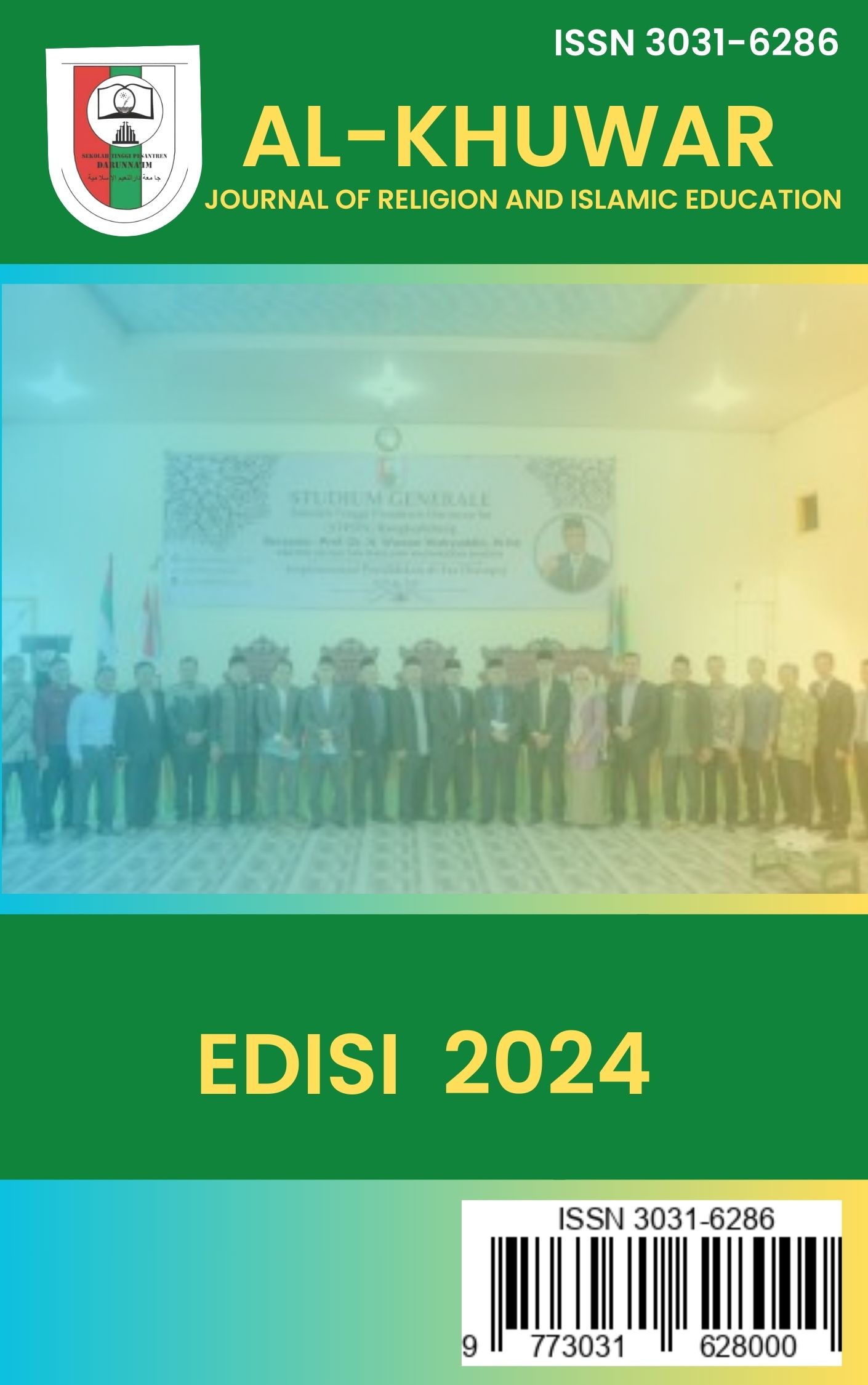
Publication Ethics
Publication Ethics
Al-Khuwar: Journal of Religion and Islamic Education is committed to upholding high standards of publication ethics. The journal adheres to the following principles to ensure integrity and ethical practices in the publication process:
Authorship and Originality: The journal requires that all submitted manuscripts are original works of the authors. Authors should properly acknowledge the contributions of others and ensure that their work has not been plagiarized or published elsewhere.
Peer Review Process: The journal follows a rigorous peer review process to evaluate the quality and validity of submitted manuscripts. All manuscripts are reviewed by experts in the field who provide unbiased and constructive feedback to the authors.
Conflicts of Interest: Authors are required to disclose any potential conflicts of interest that may influence the research, analysis, or conclusions presented in their manuscripts. This includes financial, personal, or professional relationships that could affect the integrity of the research.
Data and Results Accuracy: Authors are responsible for the accuracy and integrity of their research findings. They should provide an accurate account of the methods used, present the data transparently, and ensure that their results are supported by evidence.
Ethical Treatment of Human and Animal Subjects: If the research involves human or animal subjects, authors must comply with ethical guidelines and obtain necessary approvals from relevant ethical committees. The privacy, confidentiality, and welfare of research participants should be protected.
Plagiarism and Citation: Authors should ensure that their work is free from plagiarism, including proper citation and acknowledgment of the works and ideas of others. Any previously published content or substantial overlap with other sources should be appropriately referenced.
Corrections and Retractions: If any significant errors or inaccuracies are identified after publication, the journal encourages authors to promptly notify the editor and take appropriate corrective measures. In cases of serious misconduct or unethical behavior, the journal may consider issuing retractions or corrections.
Editorial Independence and Impartiality: The journal maintains editorial independence and makes decisions on publication based solely on the merit of the submitted manuscripts. The editor and reviewers evaluate manuscripts objectively without any bias or prejudice.
By adhering to these publication ethics principles, Al-Khiwar: Journal of Religion and Islamic Education aims to promote transparency, integrity, and responsible research practices in the field of religion and Islamic education.











